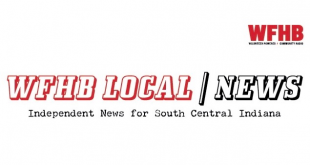Podcast: Play in new window | Download (Duration: 57:39 — 37.0MB)
We don’t know. In fact we can’t know. That’s a core tenet of the neoliberal project, which puts faith in markets instead of people.
Tonight we’re speaking with Philip Mirowski, historian and philosopher of economic thought at the University of Notre Dame, and author of Never Let a Serious Crisis Go to Waste and Machine Dreams, about how the neoliberal project is founded on — and acts upon — the assumption that the average citizen is too confused and ignorant to really know what’s best for society or themselves.
I just want to be clear that I don’t think that many people fritter away their free time reading Hayek, Becker, Buchanan or Friedman. But the historian Jennifer Burns has this wonderful insight when she describes Ayn Rand as ‘the ultimate gateway drug to life on the right’. I think that’s exactly right, namely that a certain picture of the world is learned at a very early age, usually by teenagers reading fiction or watching movies or going online. Some of them might go on and learn a little bit more about politics and economics, but in a weird sort of way that is unnecessary. Because the current culture gives them just enough to behave in ways that the neoliberals describe as being the ideal entrepreneur of the self, confusing freedom with imaginary lack of constraint, and so on and so forth. No one has to read Foucault. Just watch The Apprentice, or spend a little time on Facebook.
SEGMENT ONE
Mirowski traces the origins of neoliberalism to Friedrich Hayek and a European thought collective called The Mont Pelerin Society, who saw markets as information processors, superior to human reason. But we soon see that when neoliberalism, as a real-world political project, expects ignorance of the masses, then spreading confusion becomes an acceptable mode of operation, and lying is not necessarily a bad thing.
SEGMENT TWO
When political disenchantment is seen as a positive effect of market societies, and while neoliberal actors say one thing and do another — often coopting the left into their projects — how is an alternative to neoliberalism ever to succeed? Mirowski argues the left needs to leave classical liberal ideas behind and come up with a plausible modern counterargument to the neoliberal multi-level long-game: the telos of market domination.
SEGMENT THREE
We look at sources of knowledge in the neoliberalized world, from the power of thought collectives to the faux epistemic authority of market-inspired information spaces like Wikipedia which Mirowski has called “a fetid swamp of misinformation.” Finally, a look at how a Nazi theorist and the father of neoconservatism inspired the neoliberal politics of knowledge, along with the increasingly common political tactic of telling two stories — one to the public, and one to the insider elect — that we’ve now seen one candidate for president openly defend in the second debate.
 GUEST
GUEST
Philip Mirowski is the Carl E. Koch Professor of Economics and Policy Studies and the History and Philosophy of Science and the Director of the Reilly Center for Science, Technology, and Values at the University of Notre Dame. Among several other titles, he’s the author of More Heat than Light: Economics as Social Physics, Machine Dreams: Economics Becomes a Cyborg Science, Never Let a Serious Crisis Go to Waste: How Neoliberalism Survived the Financial Meltdown, and the forthcoming The Knowledge We have Lost in Information: A History of Information and Knowledge in Economics (with Edward Nik-Khah).
RELATED
Philip Mirowski: This is Water, or Is It the Neoliberal Thought Collective?
MUSIC
“Ignorance” by Paramore
“The Planeiac” by Palomar
“I Know But I Don’t Know,” by Blondie
“So Complicated” by Van Morrison
 NEXT UP
NEXT UP
Part Three of The Way of Neoliberalism. Ilana Gershon on “Selling Me, Incorporated.” We’ll talk about her forthcoming book from The University of Chicago Press, Down and Out in the New Economy: How People Find (or Don’t Find) Work Today.
CREDITS
Producer & Host: Doug Storm
Assistant Producer: Rob Schoon
Board Engineer: Jen Brooks
Executive Producer: Joe Crawford
 WFHB Bloomington Community Radio
WFHB Bloomington Community Radio


